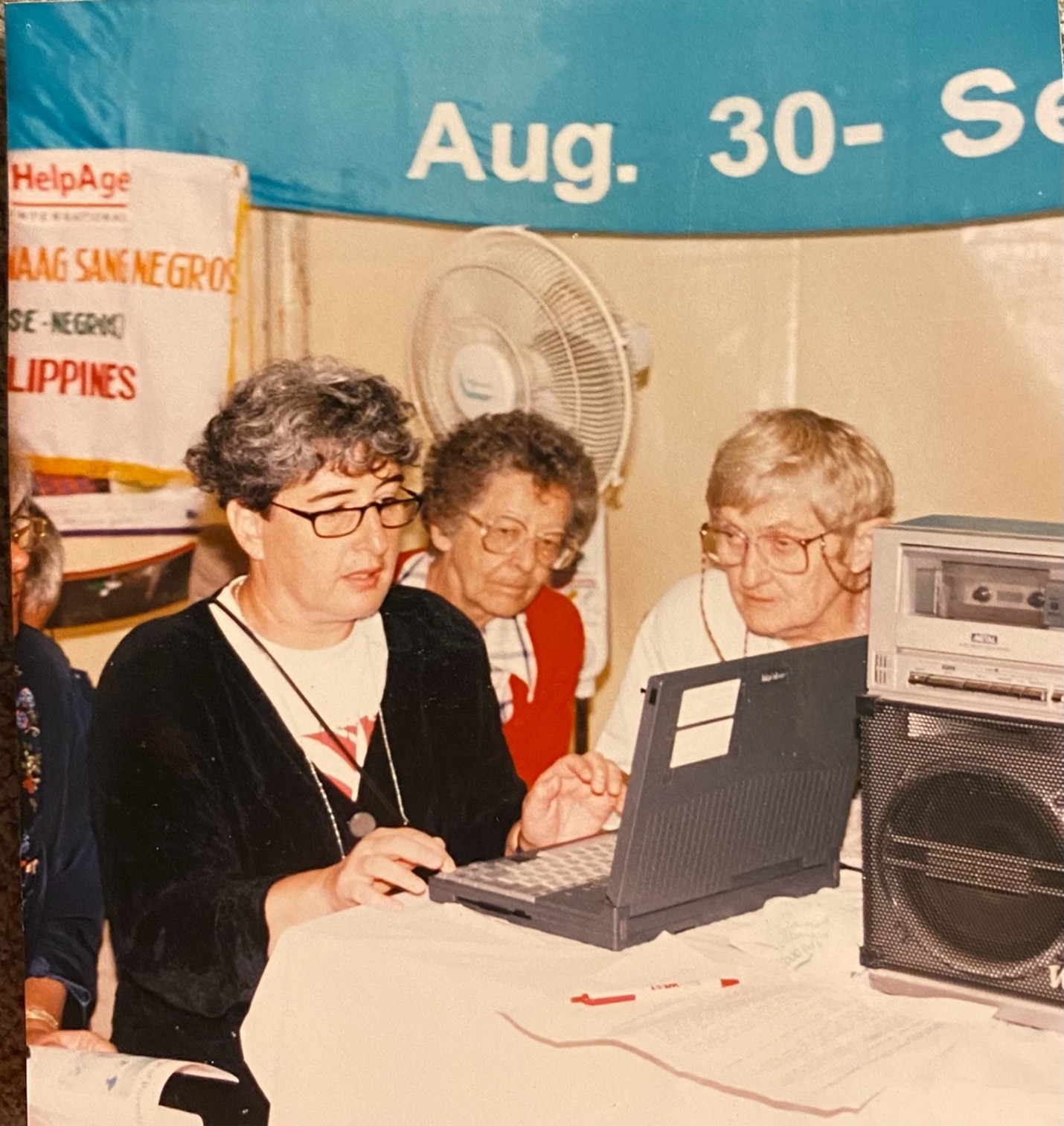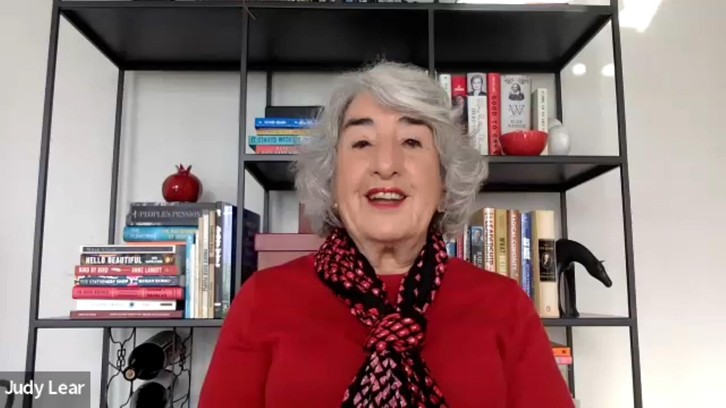HelpAge International is launching a campaign to honour the 30th anniversary of the historic 1995 Beijing Conference by spotlighting remarkable women who attended and helped shape the global gender equality agenda.
Judy Lear looks back on the 1995 Beijing Conference, where she worked to bring visibility to older women. Thirty years on, she discusses the gains, the setbacks, and why collaboration across generations remains key to achieving lasting change for women and girls everywhere.
I attended both the NGO Forum and the 4th UN Conference on Women as a delegate for the International Council of Jewish Women (ICJW). The Forum was truly inspiring, with at least 30,000 NGO participants from all over the world. There were over 5,000 workshops, and the energy was electric – so much cooperation, so much purpose. Everyone was there with a shared goal: to achieve equality for women at every level.
The official Conference, attended by 17,000 people including 6,000 government delegates, had a different tone. The negotiations over the Platform for Action were tense, with different countries pushing their own perspectives. I worked with the Older Women’s Caucus to ensure that the phrase “women of all ages” was included. At first, older women were only mentioned in three areas – health, poverty, and violence – but we successfully pushed for recognition in economic rights and the impact of armed conflict on older women.

I believe gender equality has improved, but in the past decade, we’ve seen a troubling pushback. On the positive side, many more women have taken up leadership roles in politics – two women have even run for U.S. President. In 1995, only 10% of the U.S. Congress were women; today, it’s around 25%. But we are still not represented in proportion to our numbers.
On the negative side, the rollback of reproductive rights, especially in the U.S. with the reversal of Roe v. Wade, is a stark reminder that progress is not guaranteed. The fight continues.
Older women’s rights are getting more recognition, especially at the UN, largely because dedicated activists refuse to let them be ignored. But invisibility remains our biggest challenge. Too often, we are simply not counted.
It’s hard for me to compare personally because I found my own voice after Beijing. Before the Conference, I was in the traditional roles of wife, mother, and volunteer. But then I got divorced, my children left home, and I returned to education, earning a master’s in public administration from Harvard Kennedy School. Beijing propelled me into global advocacy.
For women worldwide, I think the biggest impact has been in developing countries. Women and girls in Africa have gained better access to education and economic opportunities, Latin American countries have improved human rights laws, and Asia has made strides in poverty reduction. But in so-called developed countries, progress has been slower, and political shifts threaten hard-won gains
Today, in January 2025, I feel less hopeful. But if you had asked me last month, I would have said more hopeful. The political climate changes so rapidly that it’s hard to maintain optimism.
We may not have succeeded in getting “women of all ages” fully embedded in the Beijing Platform for Action, but awareness of ageing issues has grown. The UN’s General Recommendation #27 on the human rights of older women is a milestone. Violence against older women is now explicitly acknowledged in many global frameworks. We have made progress, and we must keep pushing forward.
As a former leader of the Gray Panthers, I know that intergenerational collaboration is key. What benefits older women also benefits younger women. The challenge is finding ways to share space and engage in real dialogue. We need to work together more intentionally.
Take every opportunity. Make your voice heard. And most importantly – take action!
 Judy Lear is a dedicated advocate for women’s rights, with a focus on older women. She is a member of the International Council of Jewish Women (ICJW) UN NGO delegation and serves as its North American Regional Vice Chair.
Judy Lear is a dedicated advocate for women’s rights, with a focus on older women. She is a member of the International Council of Jewish Women (ICJW) UN NGO delegation and serves as its North American Regional Vice Chair.
Active in the NGO Committee on Ageing, she plays a key role in its Subcommittee on Older Women. A participant in the 1995 Beijing Conference, she credits it with transforming her advocacy. Judy has held leadership roles in the Gray Panthers and was instrumental in the development of CEDAW’s General Recommendation #27 on the human rights of older women.